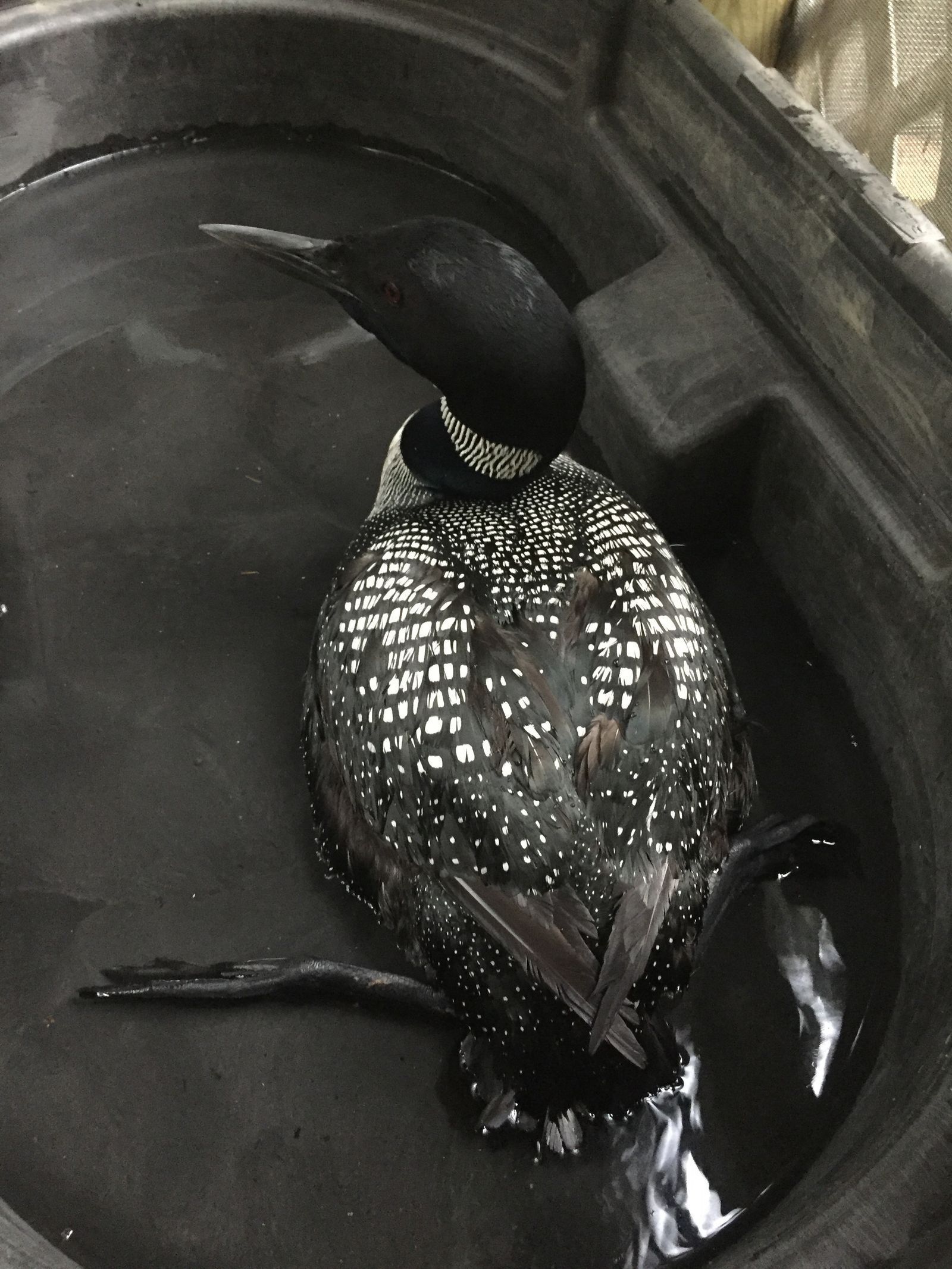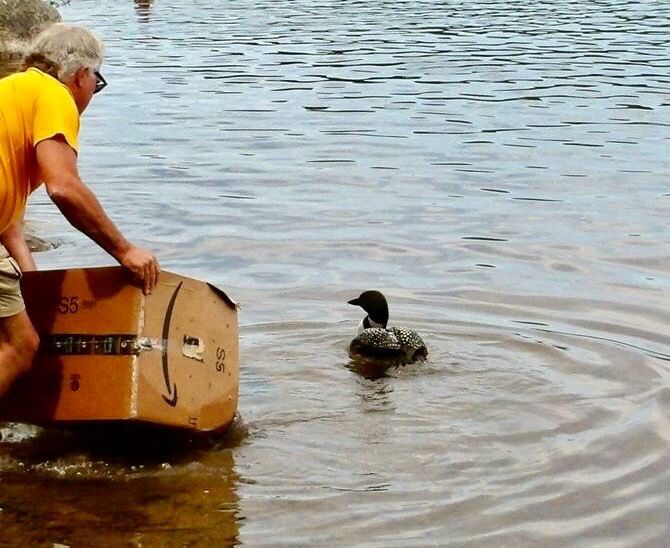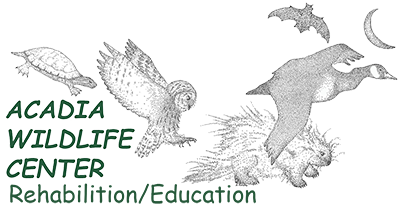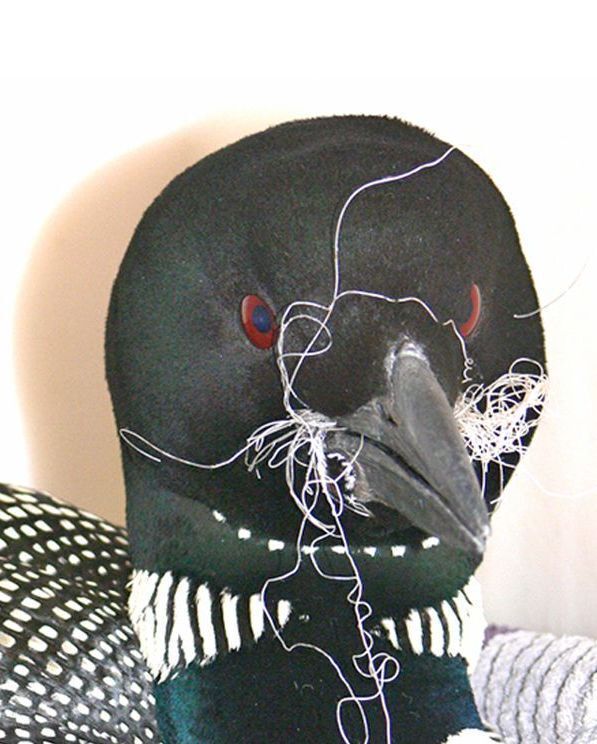A magnificent Common Loon came into the clinic wrapped with fishing line. We were very concerned that he had swallowed hooks and a lead sinker. We carefully cut and removed the line which took quite some time. The line is almost invisible, so the rehabber must make sure that no extra lines exist under the feathers before the job is complete. Then we had to deal with the lead possibility.
Loons pick up small pebbles from the bottom of ponds that they swallow into their gizzards to help grind up fish bones. Lost fishing gear in our lakes means that lead sinkers are plentiful, and they are just the right size to interest a loon. Lead is lethal and should be illegal in all forms including lead shot which poisons eagles and other scavengers.
Our next step was to let the loon swim for a bit, both to preserve waterproofing and decrease stress. Loons spend all their time either on lakes or the ocean and never get out of water unless they are sick, or nesting. Being in water helped our bird recover from the intensive handling it had taken to remove the fishing gear. To find out if lead was in our bird we had to move him to another rehab center.

Avian Haven has a radiograph machine to pinpoint the lead which shows up bright white. If lead is present, they have the equipment to test the blood for the percent in the blood, and the medicine to bind with the lead to remove it from the bird. All of these things could be done here but the bird would have to go to our vet, and then wait for the lab work to be returned. If the loon was lead poisoned, he would not live long enough.

The bird was driven the two hours to Avian Haven in Freedom, Maine. He was immediately radiographed, and no lead sinker was present. His blood was clear. Because Loons are so sensitive to stress, and because he was a dad with chicks to feed, every effort was made to get him back to his lake the same day, where he was successfully released.

